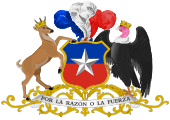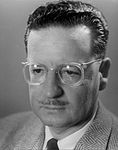
Salvador Guillermo Allende Gossens was a socialist politician, who served as the 28th president of Chile from 1970 until his death in 1973. As a democratic socialist committed to democracy, he has been described as the first Marxist to be elected president in a liberal democracy in Latin America.

The Christian Democratic Party is a Christian democratic political party in Chile. There have been three Christian Democrat presidents in the past, Eduardo Frei Ruiz-Tagle, Patricio Aylwin, and Eduardo Frei Montalva.

The Socialist Party of Chile is a centre-left political party founded in 1933. Its historic leader was President of Chile Salvador Allende, who was deposed in a coup d'état by General Augusto Pinochet in 1973. The military junta immediately banned socialist, Marxist and other leftist political parties. Members of the Socialist party and other leftists were subject to violent suppression, including torture and murder, under the Pinochet dictatorship, and many went into exile. Twenty-seven years after the 1973 coup, Ricardo Lagos Escobar won the Presidency as the Socialist Party candidate in the 1999–2000 Chilean presidential election. Socialist Michelle Bachelet won the 2005–06 Chilean presidential election. She was the first female president of Chile and was succeeded by Sebastián Piñera in 2010. In the 2013 Chilean general election, she was again elected president, leaving office in 2018.
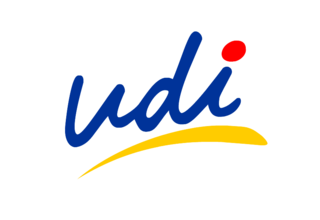
The Independent Democratic Union is a conservative and right-wing political party in Chile, founded in 1983. Its founder was the lawyer, politician and law professor Jaime Guzmán, a civilian allied with Augusto Pinochet. Guzmán was a senator from 1990 until his murder by communist guerrillas on April 1, 1991.

Patricio Aylwin Azócar was a Chilean politician from the Christian Democratic Party, lawyer, author, professor and former senator. He was the 30th president of Chile and the first president to be elected after the absolute rule of dictator Augusto Pinochet, and his election marked the Chilean transition to democracy in 1990.

The 1973 Chilean coup d'état was a military overthrow of the Popular Unity government in Chile led by the democratic socialist Salvador Allende as president of Chile. Allende, who has been described as the first Marxist to be democratically elected president in a Latin American liberal democracy, faced significant social unrest, political tension with the opposition-controlled National Congress of Chile, and economic warfare ordered by United States president Richard Nixon. On 11 September 1973, a group of military officers, led by General Augusto Pinochet, seized power in a coup, ending civilian rule.

Presidential elections were held in Chile on 4 September 1970. Salvador Allende of the Popular Unity alliance won a narrow plurality in a race against independent Jorge Alessandri and Christian Democrat Radomiro Tomic, before having his victory confirmed by a congressional vote after the Christian Democrats voted in favour of his candidacy.

Jorge Eduardo Alessandri Rodríguez was the 26th President of Chile from 1958 to 1964, and was the candidate of the Chilean right in the crucial presidential election of 1970, which he lost to Salvador Allende. He was the son of Arturo Alessandri, who was president from 1920 to 1925 and again from 1932 to 1938.

Salvador Allende was the president of Chile from 1970 until his suicide in 1973, and head of the Popular Unity government; he was a Socialist and Marxist elected to the national presidency of a liberal democracy in Latin America. In August 1973 the Chilean Senate declared the Allende administration to be "unlawful," Allende's presidency was ended by a military coup before the end of his term. During Allende's three years, Chile gradually transitioned into a socialist state.

General elections were held in Chile on 11 December 1993 to elect the President, members of the Chamber of Deputies and elected members of the Senate. Eduardo Frei Ruiz-Tagle of the Concertación alliance was elected President, and the alliance also won a majority of seats in the Chamber of Deputies and maintained its majority in the Senate. As of 2024, this is the most recent presidential election that did not result in a runoff.

Presidential elections were held in Chile on 12 December 1999, with a second round on 16 January 2000.
Presidential elections were held in Chile on 4 September 1964. As the constitution prevented presidents from serving two consecutive terms, incumbent president Jorge Alessandri was ineligible for re-election. The result was a victory for Eduardo Frei Montalva of the Christian Democratic Party, who received 56% of the vote.

Presidential elections were held in Chile on 4 September 1952. The result was a victory for Carlos Ibáñez del Campo, who ran as an independent.

On September 11, 1973, Salvador Allende, President of Chile, died by suicide from gunshot wounds during a coup d'état led by General Augusto Pinochet, commander-in-chief of the Chilean Army. After decades of suspicions that Allende might have been assassinated by the Chilean Armed Forces, a Chilean court authorized the exhumation and autopsy of Allende's remains.
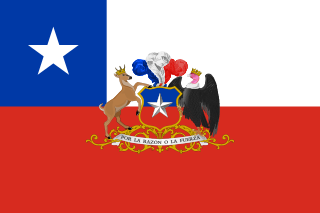
The president of Chile, officially known as the president of the Republic of Chile, is the head of state and head of government of the Republic of Chile. The president is responsible for both government administration and state administration. Although its role and significance have changed over time, and its position and relations with other actors in the national political organization have also evolved, it remains one of the most prominent political offices in the country. It is also considered one of the key institutions that form the "Historic Constitution of Chile," and is crucial to the country's political stability.

Sara María Larraín Ruiz-Tagle is a Chilean politician and environmentalist who ran for president in 1999 presidential election. She is of Basque descent.
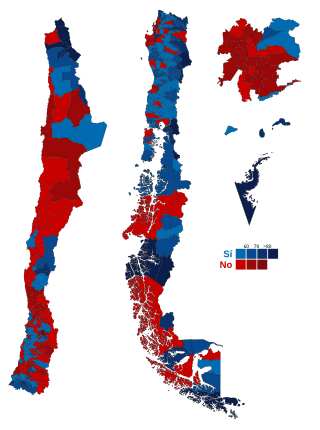
A referendum on whether Augusto Pinochet, the head of a military dictatorship, should become president for eight years under resumed civilian rule was held in Chile on October 5, 1988. The "No" side won with 56% of the vote, marking the end of Pinochet's 16-and-a-half-year rule. Democratic elections were held in 1989, leading to the establishment of a new government in 1990.

Marco Antonio Enríquez-Ominami Gumucio is a Chilean-French, filmmaker, politician, and perennial candidate. From 2006 to 2010 he was a Socialist Party deputy in Chile's lower chamber. In 2009 he quit the party and ran for President of the Republic as independent, where he finished third with 20% of the vote. He is currently the leader of the Progressive Party, which he founded in 2010.
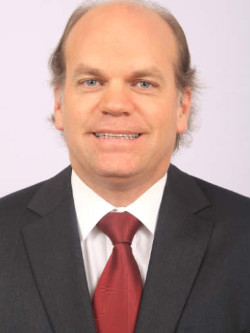
Patricio Walker Prieto is a Chilean politician. He was President of the Senate between 11 March 2015 and 15 March 2016. He was member of the Senate between 2010 and 2018. From 2007 to 2008 Walker was President of the Chamber of Deputies of Chile. He was member of the Chamber of Deputies between 1998 and 2010. Walker is member of the Christian Democratic Party.

Alberto Baltra Cortés was a Chilean politician and economist, a member of the Radical Party.
